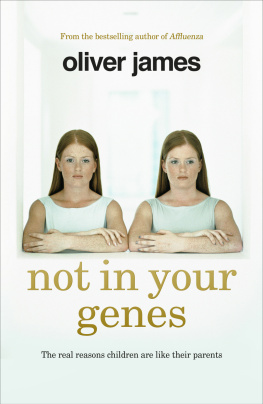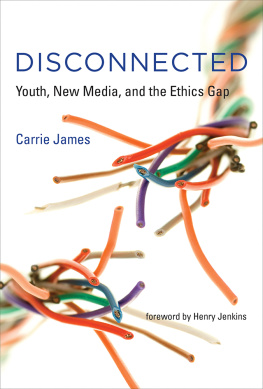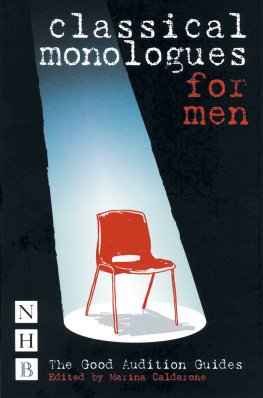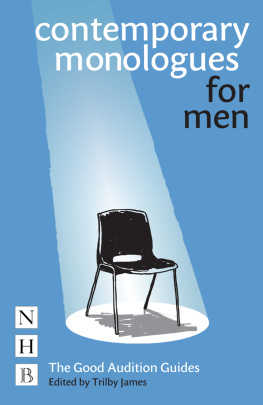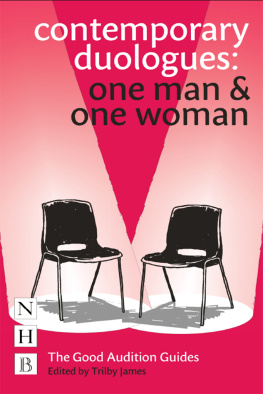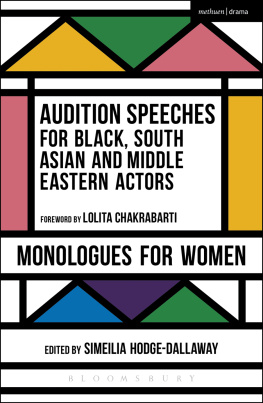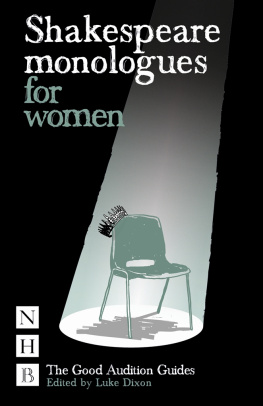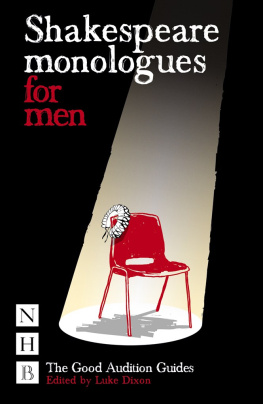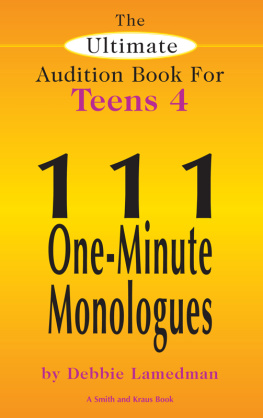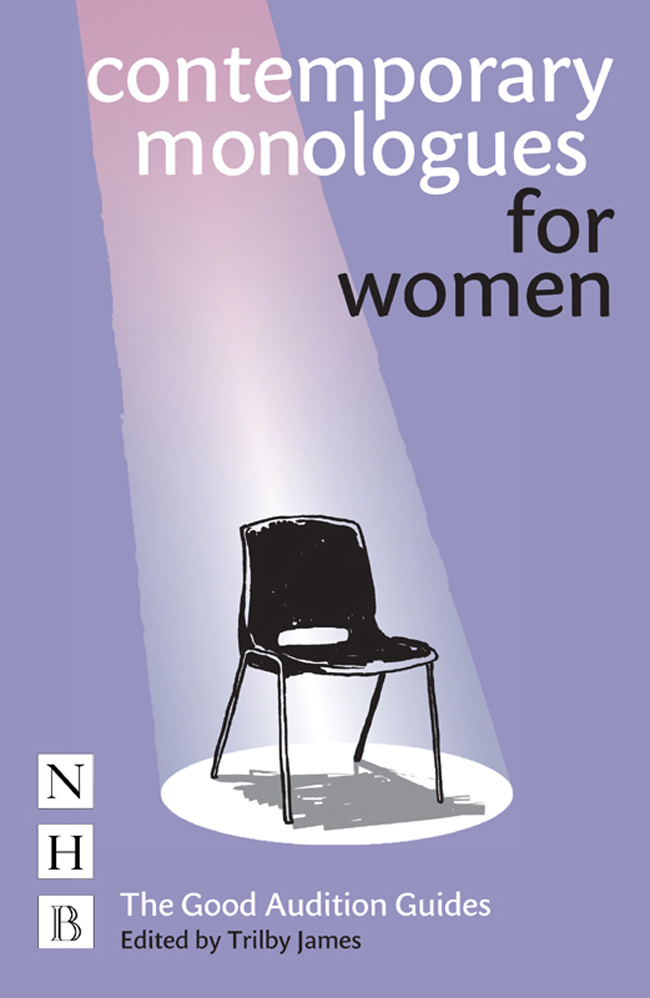The Good Audition Guides
CONTEMPORARY
MONOLOGUES
FOR WOMEN
edited and introduced by
TRILBY JAMES

NICK HERN BOOKS
London
www.nickhernbooks.co.uk
Contents
Introduction
WHY CONTEMPORARY?
Whether you are still at school auditioning for a youth theatre, about to leave school and want to go to drama school, at drama school looking for showcase material, or a young professional actor preparing for a specific audition, a well-chosen contemporary monologue will be a key component in your audition repertoire. It should reflect something of your own taste and, depending on the style of writing, may provide an opportunity to show something more intimate, more televisual than a classical speech might allow.
The fifty monologues in this volume are from plays that have been written post-2000. With the odd exception the characters range in age from fourteen to thirty-five. There is a wide variety of character types and styles of writing from which to choose. They are all drawn from the extensive list of new plays published by Nick Hern Books.
CHOOSING YOUR MONOLOGUE
I have often likened finding the perfect monologue to finding the perfect pair of jeans. It is rarely a case of one size fits all. You might have to try on several pairs, in different stores, before you find the cut that works for you, but once you have, you will feel confident in the knowledge that you are looking and feeling your best. So it is with audition speeches. You need to find pieces that suit you, that you cannot wait to perform and that will get even better with wear.
If you are auditioning for a youth theatre:
You will be judged on your potential and your willingness to be open, honest and free. Nobody is looking for a polished or over-rehearsed performance. It is best therefore to choose pieces that allow you to express yourself and for a panel to see something of who you really are. |
Choose something close to you in age and type. Something to which you can relate. Something that inspires you, from a play that speaks to you. |
Avoid accents unless you are really good at them. |
If you are auditioning for drama school:
And have been asked to prepare a classical speech, choose a contemporary monologue that will provide contrast. For example, you may have a Shakespearean monologue that is pensive or tragic so opt for something comic. Similarly, if your classical speech is light in tone, choose something that shows off a more serious side. |
If you are already at drama school:
And you are looking to extend your range, you will want to choose a monologue that stretches you. Perhaps you are studying a particular accent or type of character quite different from yourself. |
And are looking for showcase material, think about how you wish to present yourself. Consider whether you are right for the part you have chosen and whether, if there was to be another production of the play, you could be easily cast in the role. |
If you are auditioning for a specific role in a professional production (and have been asked to prepare an additional piece that is not from the play for which you are being seen):
Choose something close to the part for which you are auditioning. |
Consider the language of the piece and whether you are after something heightened and obviously theatrical or whether you require something more intimate, and realistic. |
If you are looking to extend your showreel:
It may sound obvious, but think about what sort of speeches would be best suited to the varying demands of radio or television. |
PREPARING YOUR MONOLOGUE
Learn your speeches well in advance of the actual audition. Should you forget your lines the panel will be able to tell whether it is out of nervousness or insufficient preparation. |
Read the play. You may be asked questions about it or be required to improvise around it. |
Undertake all necessary research. Make a study of the historical, social and political world of the play. Be sure to understand the meaning of unfamiliar words and references. If the characters accent is not native to you, work hard to perfect it. |
Remain flexible in the way you perform/stage your monologue. Be prepared to be redirected in an audition. |
Using props. There are no hard-and-fast rules about the use of stage properties at an audition. However, common sense suggests that, if you can easily carry an object in your pocket (i.e. a letter, a ring, a handkerchief, etc.), by all means bring this to an audition. If the object to which you refer is large, imagine it is there, or, if necessary, mime using it. Some might even argue that miming props is simpler, and in certain cases much more practical. In any event, you need not worry about being marked down by your decision either to use real objects or to mime using them. What is important is that they do not become burdensome and get in the way of your acting. |
Try not to get stuck in a mode of delivery. It is useful to consider that, unless a character is making a political or after-dinner speech, chances are they have no idea they are going to speak for such a long time. They may make a statement, perhaps as a response to a specific question; then having made that statement they might need to qualify it. They might then be reminded of something else they wish to add and so on. In this way, a monologue can be regarded as a series of interrelated thoughts. Communicating a characters thought processes is fundamental to any acting technique. In the case of an audition, it takes the pressure off having to deliver a load of text. It allows you to stay fresh, to be in the moment and to make spontaneous choices. Before you start, all you need worry about is the trigger the reason for saying what you do. Then have the courage to take it thought by thought and allow yourself to be surprised. In this way the monologue should feel slightly different every time. |
It is vital that you use your imagination to envisage all that the character sees and describes. If you are still seeing the page on which the speech is written, you know you are doing something wrong. Provide images for yourself so that in your minds eye you quite literally lift the speech from the page. |
Timing/editing. Most speeches at audition should last no longer than two minutes. Some of the monologues in this edition are slightly longer, some shorter. Some I have cut, and some I have edited from a duologue with another character, and some have been augmented by joining two or more passages which appear separately in the original text. I have inserted this empty bracket symbol [] to show where a cut has been made. Once you have read the whole play, you may have ideas of your own about what and what not to include. |
THE AUDITION
You will find there are many useful books on the market that make a complete study of this subject, from what to wear to how to enter and exit a room. These are some of the basics:
Manage your nerves. Try to put the increased adrenaline you are experiencing to good use. Approach the audition with a positive sense of excitement, something to which you have been looking forward as opposed to something you have been dreading. Nervous energy, if correctly channelled, can help at an audition. Conversely you should avoid being under-energised. If you are someone who reacts lethargically to increased stress, you may need to do a good warm-up before you arrive. |


